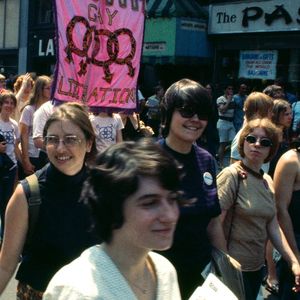Eight million more women than men voted for Obama for president. And one of the reasons we did was because of his purported position on reproductive justice issues like abortion and emergency contraception (EC).
For example, in 2008 he pledged to Planned Parenthood: "I will not yield" to pro-life concerns. But with the stroke of 20 pens that is just what President Obama did, when he signed into law on March 23, the long awaited "Patient Protection and Affordable Care Act (H.R. 3590)" by pandering to pro-life Democrats.
"President Obama made an eleventh-hour agreement to issue an executive order lending the weight of his office to the anti-abortion measures included in the bill. This move was designed to appease a handful of anti-choice Democrats who have held up health care reform in an effort to restrict women's access to abortion," Terry O'Neill, president of the National Organization for Women (NOW) wrote on its web site.
"This executive order helps to cement the misconception that the Hyde Amendment is settled law rather than what it really is -- an illegitimate tack-on to an annual must-pass appropriations' bill. It also sends the outrageous message that it is acceptable to negotiate health care reform on the backs of women."
The hope was that ObamaCare would correct this injustice from Congress passing the Hyde Amendment in 1976, which excluded abortion from health care services provided to low-income women through Medicaid.
But with the signing into law Obama's Health Care Reform bill many women are dismayed that the bill's anti-abortion provision not only keeps the Hyde Amendment in place but it also upholds the Stupak-Pitts Amendment, an amendment that prohibits the use of federal funds "to pay for any abortion or to cover any part of the costs of any health plan that includes coverage of abortion."
Using women's health care as a bargaining chip to pass H.R. 3590 has diminished, if not eliminated for poor women and women of color who cannot pay for reproductive health care out-of-pocket, not only a safe abortion accessible to them but also emergency contraception.
On the same day Obama signed H.R. 3590, the Center for Reproductive Rights reignited its challenge to the Food and Drug Administration (FDA) -- that was won on March 23, 2009 in the U. S. District Court for the Eastern District of New York court -- to make the morning-after pill accessible to all women and girls without a prescription and age restriction.
more on next page...
\\\
(continued)
"This past weekend, the White House turned its back on women, sanctioning a cruel and unjust federal policy that denies poor women across the country access to medically necessary abortions. Given the ground that women lost in the healthcare debate over access to abortion, it is now even more important that the administration step up its efforts to increase access to contraception to prevent unwanted pregnancies," said Nancy Northup, president of the Center for Reproductive Rights.
With ObamaCare's limitation on women's access to an abortion, the FDA's approval for over-the counter sales of emergency contraception (EC) would be a small victory for women in this country in terms of reproductive justice. Why? Because when the fault lines of race, class and geographical location contribute to some of the existing discriminations and disparities confronting marginalized populations of women, the politics of "choice" is never as simple as a matter of public versus private domain. And a woman's "choice" is predicated on accessibility. But her "choice" is gravely diminished when EC is as difficult as obtaining a safe abortion.
In African-American women's communities I work with - urban and rural - across the country, information about EC and its accessibility is negligible. Those women and communities that do know about EC face an uphill battle either finding pharmacies in their communities that carry EC, or finding informed and culturally competent pharmacists and staff that dispense the drug without making women feel embarrassed, ashamed or filthy.
African-American women, who are besieged by a cultural iconography of black female sexuality that is wild and wanton, face a distorted reality. As a consequence, they have high rates of sexual abuse and assaults -- but low rates of reporting them -- the highest percentage of unintended pregnancies, unsafe abortions and the highest number of uninsured and underinsured population of women in the country.
EC would greatly reduce the number of unintended pregnancies in the African-American community by affording women -- in this anti-abortion era -- reproductive autonomy to invest in their health intervention and prevention care.
Reproductive justice is not only about access to information but it's also about the availability of safe choices afforded to women provided by our government. But how will we know with the passing of this bill?
Read more of Rev. Irene's opinion pieces.
Follow SheWired on Twitter.
Become a fan of SheWired on Facebook.























































































































